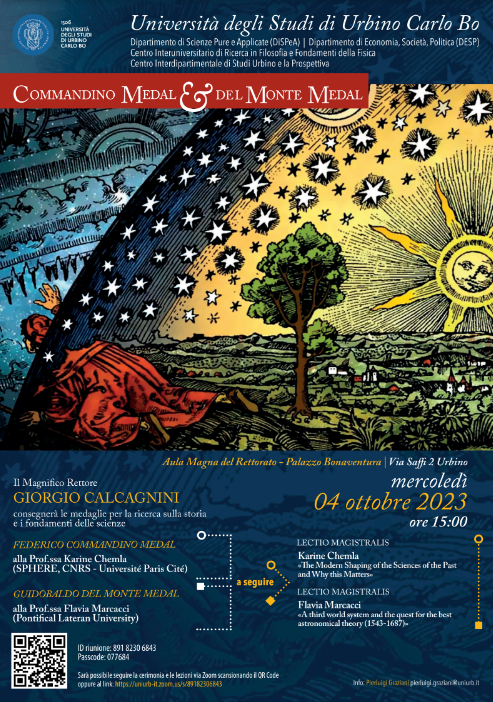Il Magnifico Rettore dell’Università degli Studi di Urbino Carlo Bo Prof. Giorgio Calcagnini consegnerà le medaglie per la ricerca sulla storia e i fondamenti delle scienze:
A seguire le Lezioni Magistrali delle premiate:
Sarà possibile seguire la cerimonia e le lezioni magistrali via Zoom attraverso il seguente link:
LINK
https://uniurb-it.zoom.us/j/89
ID riunione: 891 8230 6843
Per informazioni: Pierluigi Graziani, pierluigi.graziani@u
Most of the scientific works of the past on which historians of science draw for their research are in fact editorial products of the 19th and the 20th centuries. Who produced these editions, and what procedures did these editors follow to this effect? What values did these editors prize, and what readerships did they have in mind? This presentation argues that a historical approach to the actual shaping of these scientific works of the past is an essential task to undertake, not only in and of itself, but to help us use these works with the appropriate critical distance.
In 1543 Copernicus’ De Revolutionibus orbium coelestium challenged traditional astronomy and in 1610 the sensational telescopic discoveries of Galileo opened the debate to a wider public. The traditional approach, both in terms of instruments and mathematical knowledge, continued to be maintained by most astronomers. Acceptance of the new ideas was slow until the new celestial mechanics of Isaac Newton (1687). The observation of the phases of Venus were a serious problem for Ptolemaic astronomy but a third world-system proposed by Tycho Brahe, and immediately reproposed in several variants by other astronomers, gave rise to interesting and stimulating debate which I shall discuss in my talk.


